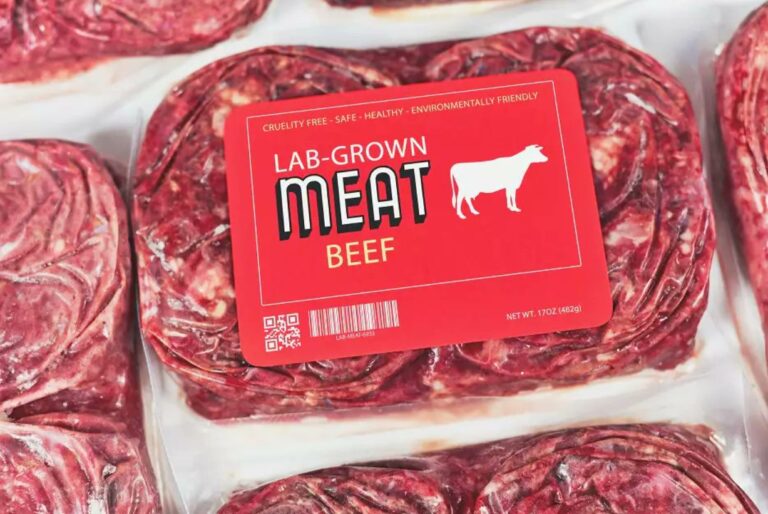An important milestone has been reached in the United States, with the marketing approval of lab-grown meat. This innovative product will now be available for purchase in supermarkets and for consumption in restaurants, as the relevant authorities have guaranteed its safety for human use.
The approval was granted by the Food And Drug Administration (FDA), the federal agency responsible for regulating drugs, therapies and food products, and the U.S. Department of Agriculture (USDA). This event represents a major turning point in the history of food, with several implications. Including animal welfare and the fight against climate change.
Table of Contents
Lab-grown meat comes to market
The two companies Good Meat and Upside Foods have received approval to offer lab-grown meat for sale. Both companies have received approval for chicken meat products.
Cultured meat is obtained by extracting cell samples from an animal. Which are then multiplied in the laboratory inside a specially designed bioreactor or fermenter.
The advantages of cultured meat: ethics, environment and sustainability
The advantages of marketing lab-grown meat, as indicated, are many. First, there is an end to the suffering of animals raised for human consumption, often kept in intensive regimes where so-called “welfare” cannot exist.
Many people choose to become vegan or vegetarian precisely so as not to be complicit in the atrocities committed against farmed animals. Cultured meat would eliminate this kind of suffering altogether.
Secondly, there would be significant benefits in terms of CO2 (carbon dioxide) emissions, land consumption and water use. All of which are crucial in the context of the climate crisis. The 20 largest meat and dairy industries, according to the Meat Atlas document, emit more greenhouse gases than large industrialized countries such as France and Germany.
Read also: Without intensive livestock farming, CO2 pollution would be reduced by 68%
A revolution in the food industry
Trade approval for lab-grown chicken meat is likely to give a significant boost to the entire industry, which is already very enterprising.
Some are industrializing to produce meat from exotic (such as zebras and lions) and even extinct animals such as mammoths. This, again from cell samples and of course without harming animals (or fossils).
By undergoing a comprehensive review process and meeting the highest regulatory standards, cultured meat will provide consumers with a safe and reliable source of protein.
As we navigate a future with increasing global demand for meat, it is critical that governments around the world prioritize cultured meat as a solution that meets consumer preferences, supports climate goals and ensures food security for generations to come.
Read also: Water consumption rates: which industries use the most?












